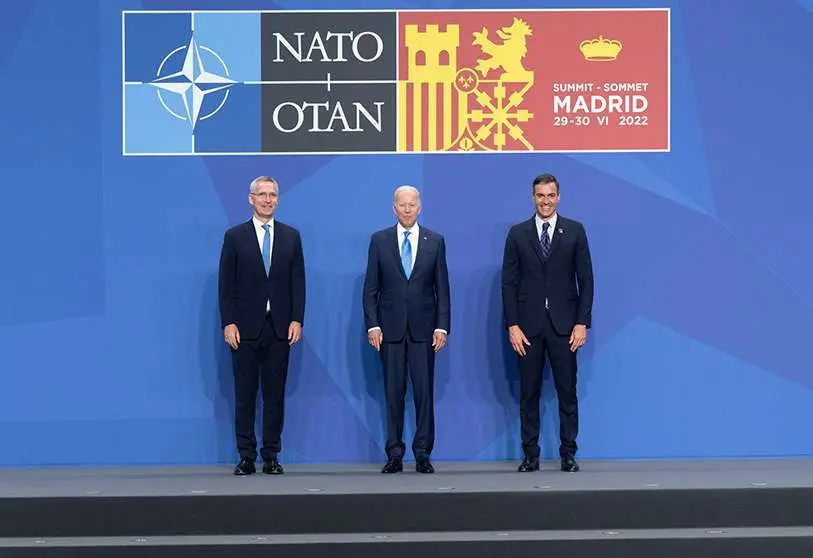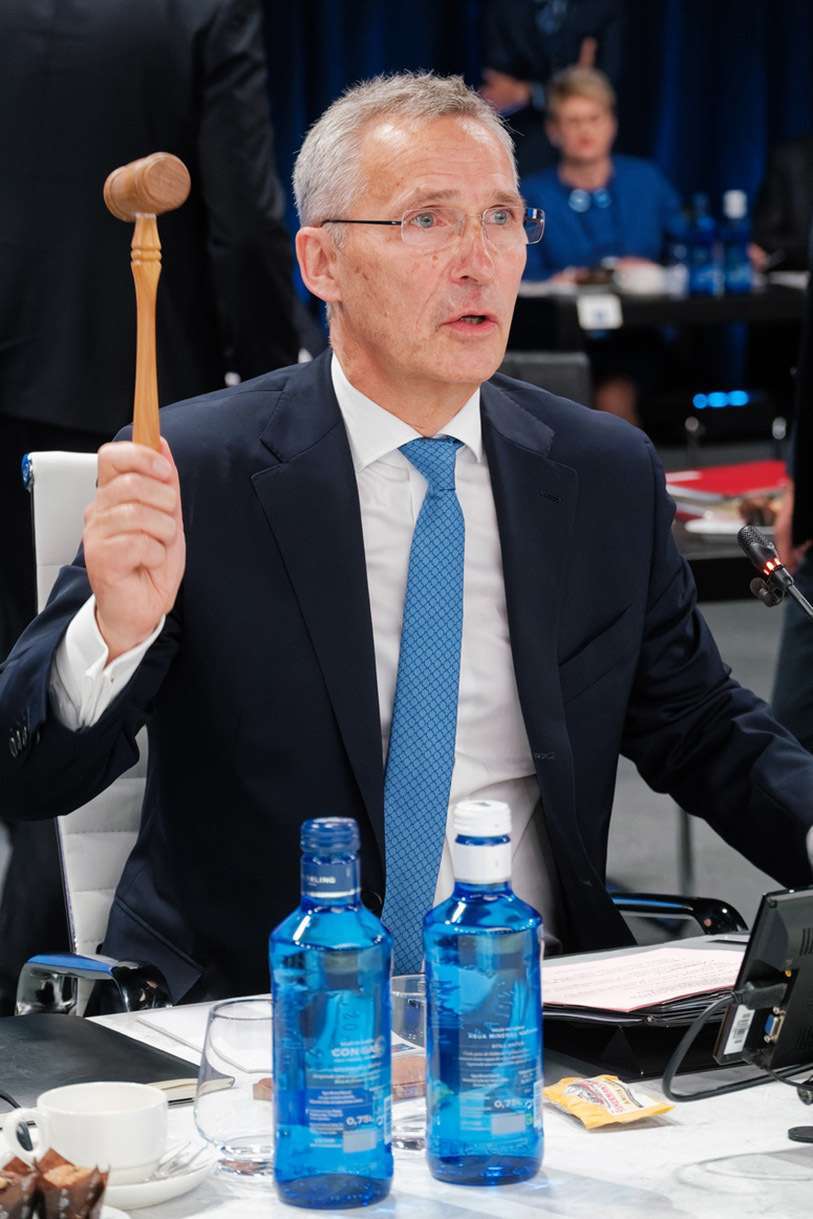NATO defines Russia as "the most significant and direct threat" to the Alliance in new Strategic Concept

IFEMA - NATO allies sealed in Madrid the new Strategic Concept of the organization, which will guide the action of the Atlantic Alliance for the next 10 years. The document, published on Wednesday at the end of the first meeting at the level of heads of state and government, in which Ukrainian President Volodymir Zelenski spoke, lists security challenges and recognises Vladimir Putin's Russia as the organisation's main threat. Last time, Moscow was defined as a "potential partner", but the invasion of Ukraine has conditioned the drafting of the text from the outset.
The Strategic Concept is a document that sets out NATO's "values and purposes and provides a collective assessment of the security environment", according to NATO. Since the end of the Cold War, it has undergone several 10-year or so updates in order to gauge the global context and outline a defined roadmap in the areas of deterrence and defence, crisis prevention and management, and cooperative security. Although the partners prioritise deterrence, as demonstrated by the ambitious military reinforcement of the Eastern Flank.
It has taken more than 10 months, dozens of drafts and debates to finalise an 11-page document that replaces the one approved in 2010 at the Lisbon Summit. Twelve years later, the geopolitical scenario is completely different, although the transatlantic organisation claims to have taken into account some details of the last Strategic Concept "that are still relevant". NATO's focus this time, however, is on Russia, terrorism and conflicts in the Middle East, Maghreb and Sahel regions.
NATO's Madrid Summit coincides with a defining moment in the emerging international order. The war in Ukraine has made the meeting in the Spanish capital a new "turning point" for the Atlantic Alliance, as was the last meeting in Madrid in 1997. At that time, a new eastward enlargement was approved and became effective two years later, and included countries that had been part of the Warsaw Pact. Now, the Alliance is expanding northwards and will extend its border with Russia by 1,300 km.

The signing of the Accession Protocols with Sweden and Finland is scheduled to take place on 5 July in Brussels. Afterwards, the 30 national parliaments will have to approve the Nordic countries' accession and, finally, the accession documents will have to be deposited with the US State Department. The aim of the partners is to "speed up the procedures as much as possible", according to sources in Moncloa.
With a preface and four sections, the new Strategic Concept sets out in barely fifty points its diagnosis of the global scenario and includes some of the key points that will mark its action in the coming years. First, it defines Russia as "the most significant and direct threat to Allied security and to peace and stability in the Euro-Atlantic area" through its aggression and use of conventional, cyber and hybrid means, but makes it clear that NATO "does not seek confrontation and poses no threat" to Moscow.
Terrorism returns to the fore more than two decades after 9/11, this time as the "most direct asymmetric threat to the security of our citizens and to international peace and prosperity". Allies agree that terrorist groups have enhanced their capabilities. "Non-state armed groups, including transnational terrorist networks and state-supported actors, continue to take advantage of conflict and weak governance to recruit, mobilise and expand their position," the Strategic Concept notes, referring to the Sahel, a troubled region that is among the Alliance's targets for the first time.
China is another of the main points of the strategy document, although the text reflects the disagreements within the Alliance on this issue. The United States has pushed until the last minute for greater belligerence against the Asian giant in a context of global hegemony: "[The People's Republic of China] uses its economic clout to create strategic dependencies and increase its influence. It strives to subvert the rules-based international order, including in the space, cyber and maritime domains".

"The deepening of the strategic partnership between the People's Republic of China and the Russian Federation and their mutually reinforcing attempts to undermine the rules-based international order are contrary to our values and interests", the new Strategic Concept states, although in the following point it clarifies that the partners remain "open to constructive engagement" with Beijing. Moncloa assures that China does not come in as a threat, but as a challenge in which cooperation is sought. In this case, Spain agrees with the European Union, which was represented at the summit, because "it does not interpret an alignment between Moscow and Beijing".
According to government sources, Spain has seen its demands fulfilled in the new Strategic Concept. The 360º vision and the reinforcement of the Southern Flank, contemplated in the document with the reference to North Africa and the Sahel, satisfies the concerns with which Spain arrived at the Summit. In particular, Moncloa is making a strong case for having introduced the amendment of 'territorial integrity', a concept that is mentioned on up to four occasions, but which does not refer to any specific territory in the text.
"We cannot rule out the possibility of an attack on the sovereignty and territorial integrity of allies. While NATO is a defensive Alliance, no one should doubt our strength and determination to defend every inch of Allied territory, to preserve the sovereignty and territorial integrity of all Allies and to prevail against any aggressor," the partners state in the strategy document.
The executive branch says it has no doubts that Spain's territorial integrity is guaranteed and covered by article 5 of the North Atlantic Treaty, although there is no express mention of the autonomous cities of Ceuta and Melilla, nor are there sections that leave behind the ambiguity that is characteristic in this area, which leads one to think that political will will will prevail in any scenario.








